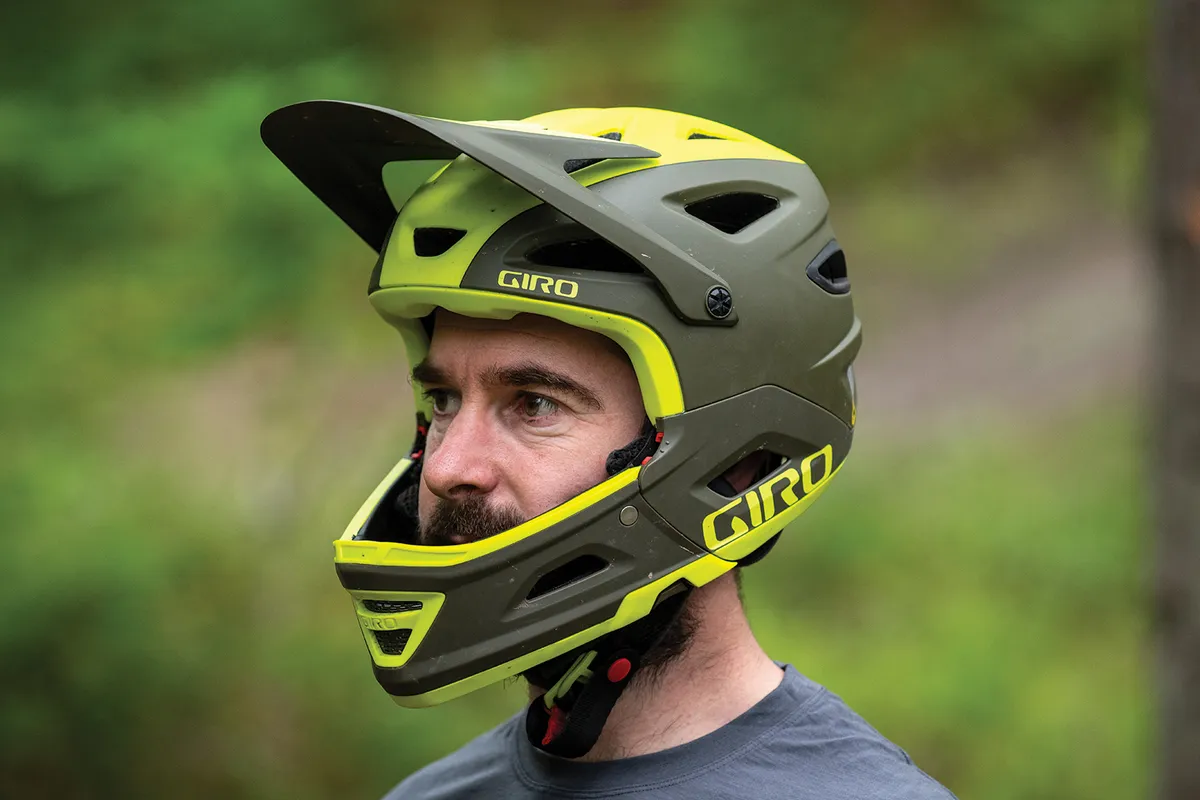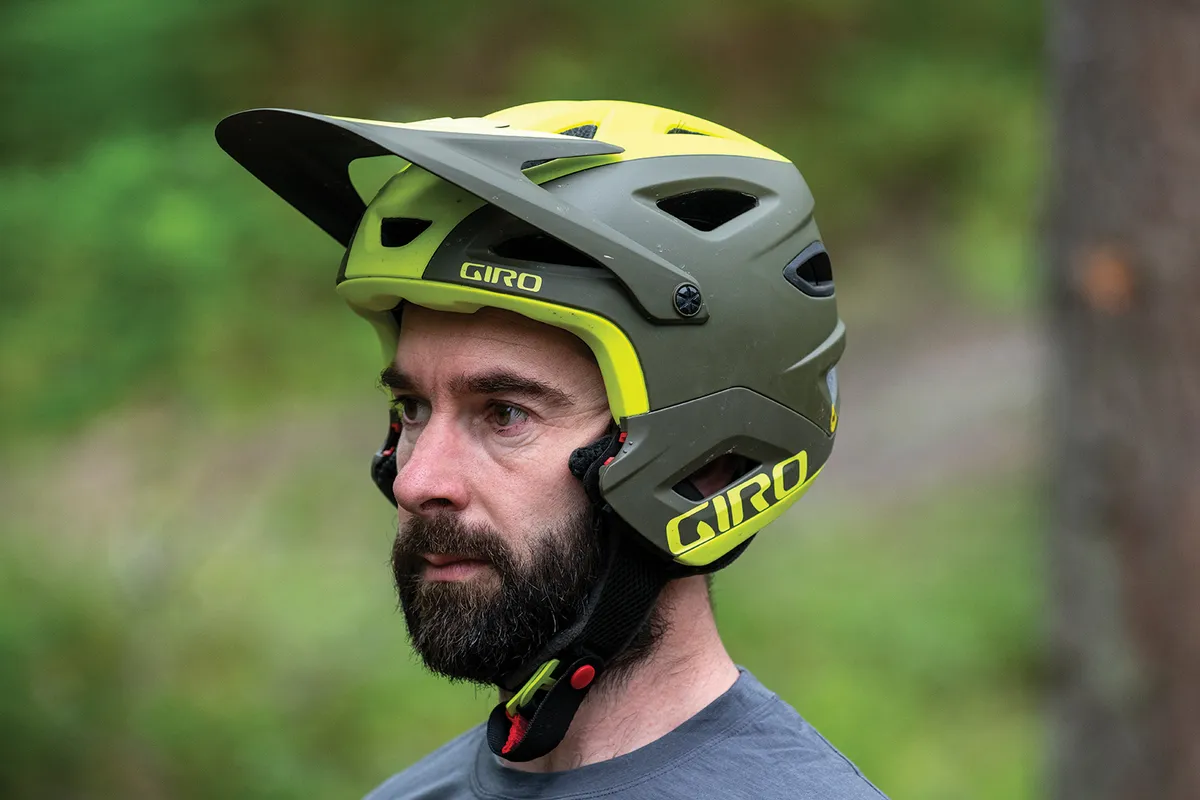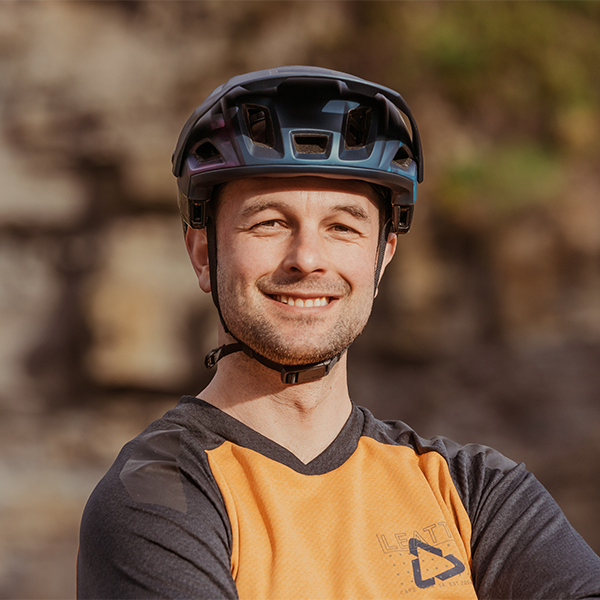Since its inception in the early 2010s, enduro racing has quickly become one of the most popular mountain bike disciplines, representing the type of riding a lot of mountain bikers were already doing.
Enduro offers technical but accessible racing for riders who want to avoid the full-blooded tracks of downhill racing, or the lycra-clad whippets of cross-country racing.
But what exactly is enduro racing? Read on to find out what enduro is all about, why you might want to give it a go and what you need to get started.
What is enduro racing?
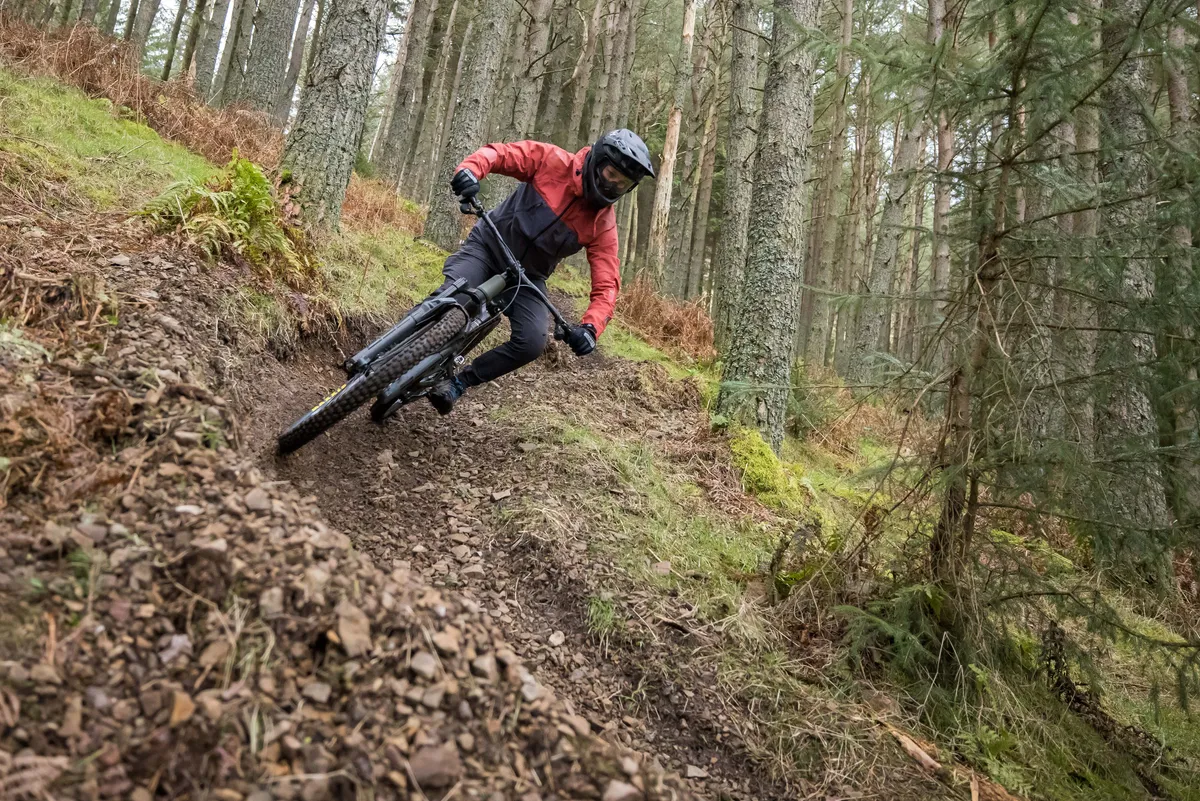
There’s a clue in the name – it’s gravity racing but with an endurance element. In the early days, ‘enduro’ races were long-distance cross-country races, but those now tend to be known as marathon races.
Modern enduro events are very different. Enduro races are made up of multiple downhill stages, which are timed to generate the event’s result, while the uphills are ‘liaisons’.
Here, riders have to reach the start of the next stage within a time limit but, providing a rider meets that time limit, the actual time doesn’t contribute to the final result. Got it?
Enduro races tend to last one or two days with riders normally completing up to six timed downhill stages per day. The cumulative times of all their stage results are added together to create their overall time, which ultimately decides a rider’s finishing position in the field.
Whether riders pedal to the top of each downhill stage or jump on a form of uplift transport (vans, buses, chairlifts or cable cars) depends heavily on where the event is organised and the amount of elevation change the day’s riding (or a particular stage transition) has.
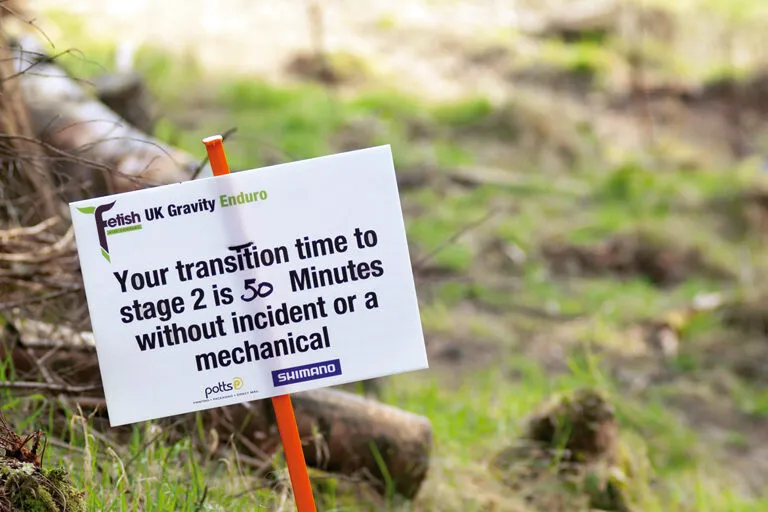
The best-known and biggest enduro event is the UCI Enduro World Cup (EDR), which has taken over from the Enduro World Series (EWS). The UCI Enduro World Cup visits some of the world’s best riding spots for each of its rounds. Each round has a winner and there’s also a series winner at the end of the year.
Many smaller, local enduro events also exist, and some of these have UCI Enduro World Cup qualifier status, which means if you place high enough, you could enter a UCI Enduro World Cup event.
If you fancy a slice of the UCI Enduro World Cup action but can’t or don’t want to qualify, there are two open racing events, which allow non-qualifying riders to race with the winner receiving a qualifying spot for a UCI Enduro World Cup round.
What’s so good about enduro racing?
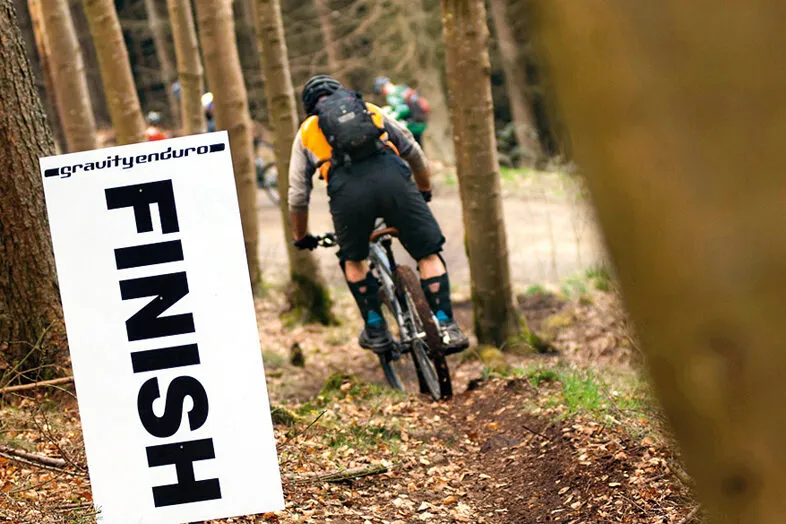
Downhill racing requires extreme technical skill (and bravery) and expensive kit, while cross-country racing is largely about fitness (although XC race courses are becoming increasingly more technical, with cross-country bikes becoming more capable as a result).
However, anyone with a decent trail bike or downcountry bike, some technical riding experience and enough stamina to ride their local singletrack for a couple of hours can have a bash at enduro racing.
You might also find yourself already riding enduro without knowing it. After all, enduro isn’t only about racing, it’s a style of riding in itself.
Do you pedal efficiently but relatively slowly to the top of descents, where you then ride as hard and as fast as you can downhill, expending the most energy? If so, you’re already an enduro rider!
Enduro racing is also arguably better value for money than downhill racing. You get a lot more riding for your entrance fee than at a downhill race, because you ride multiple stages rather than just one track. This also means a mishap or mechanical won’t necessarily put you out of the running because it’s the overall time that counts, rather than individual stages.
The other big thing going for enduro races is the friendly atmosphere. While the top riders are definitely in it to win it, further down the field it’s more about having a go and enjoying a bit of finish-line banter.
The same, of course, could be said for almost any event – mountain bikers are generally a friendly bunch.
What type of bike do I need for enduro racing?
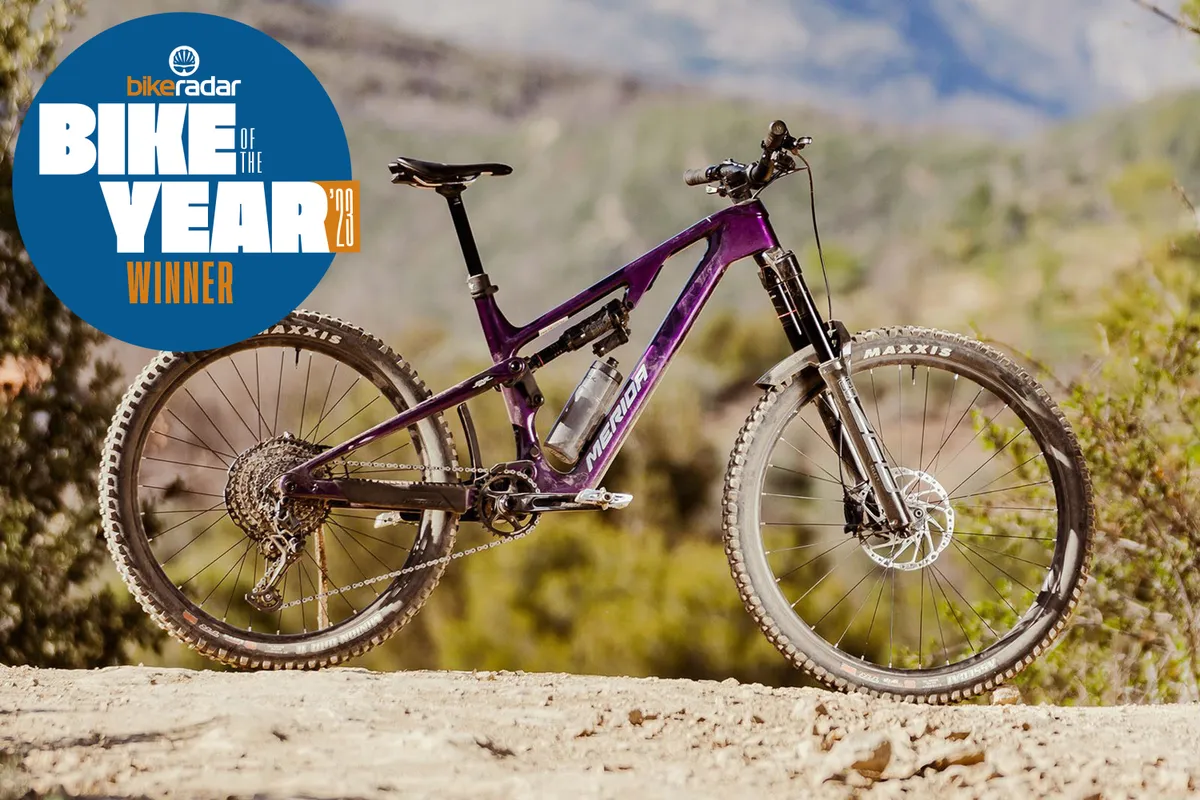
To race enduro competitively, you’ll want a full-suspension bike with at least 140mm of suspension travel, and up to 170-180mm of travel.
The growing profile of enduro racing, and the popularity of enduro as a style of riding, means that a lot of mountain bike brands now offer enduro bikes designed and specced specifically for the demands of the discipline.
There are dedicated enduro bikes, built specifically for the racing format. There’s nothing in the rules to stop you from using a hardtail mountain bike or lightweight cross-country bike but you’ll find it hard work on the descents. At the other end of the spectrum, longer-travel freeride and downhill bikes are a drag on the climbs.
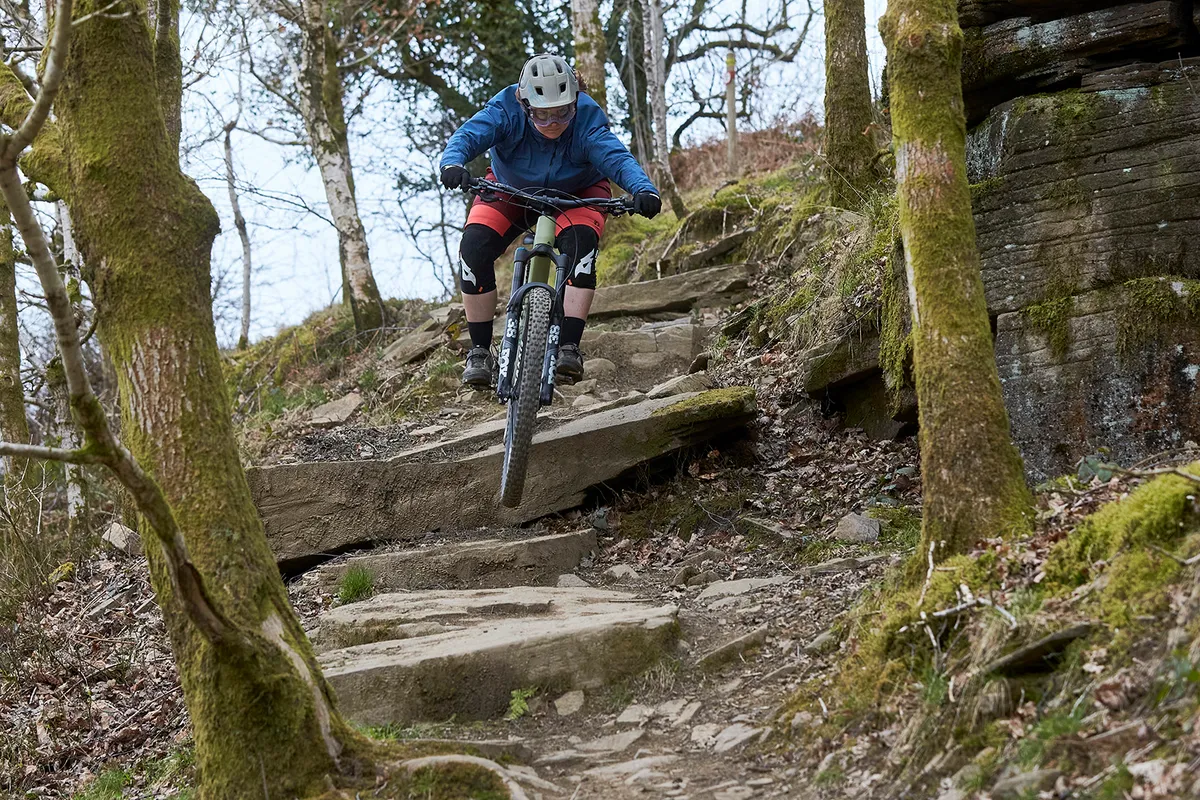
It’s a good idea to fit a chain device and clutch-equipped rear derailleur so your chain doesn’t get bucked off on the rocky sections. Big-volume downhill-style mountain bike tyres are decent additions, too – they increase puncture resistance and add comfort. Otherwise, a short stem and wide handlebar will improve control, and a dropper post will make it easier to throw the bike around when things get sketchy.
Do I need any specialist riding gear for enduro racing?
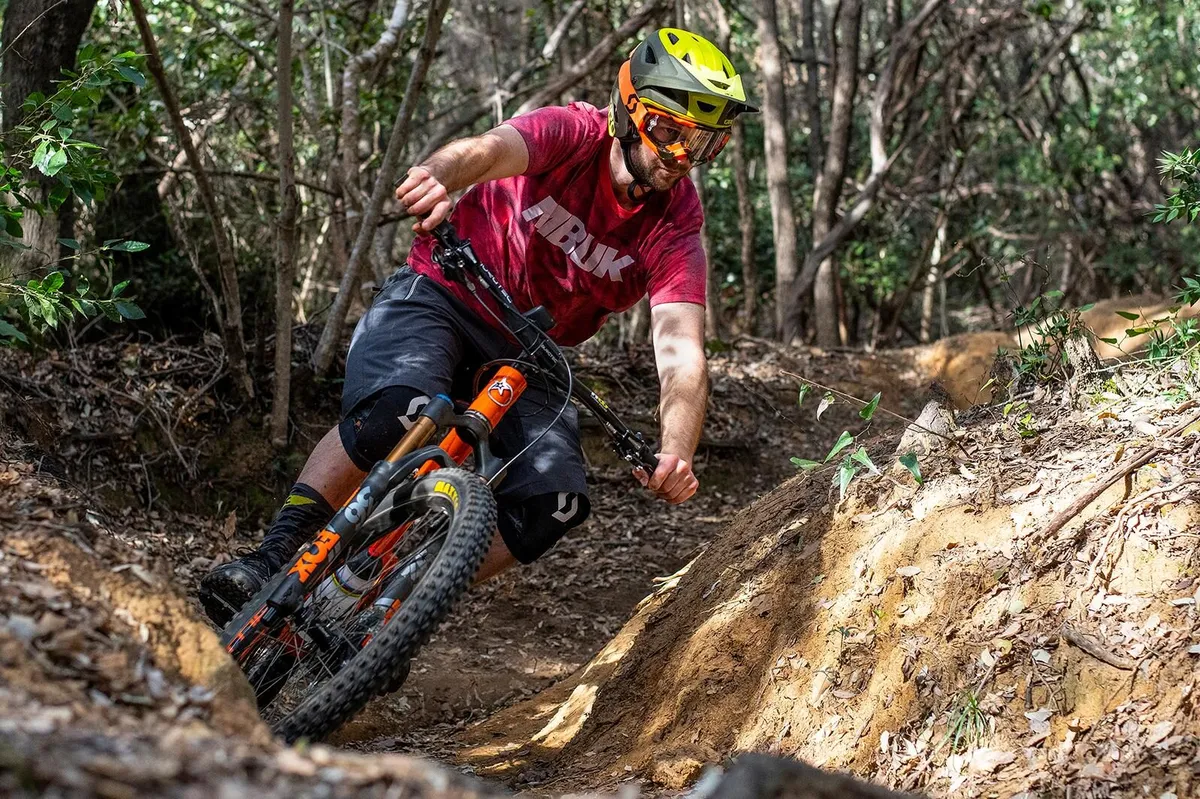
Full-face helmets are a good idea for rockier tracks but standard mountain bike helmets are often fine for tamer, more pedal-friendly venues. That said, some race series organisers mandate the use of full-face mountain bike helmets, so be sure to check the rules carefully.
Some brands offer convertible enduro-specific helmets, designed to offer the protection of a full-face helmet and the ventilation of an open-face lid in one package. We've got a guide to the best enduro helmets.
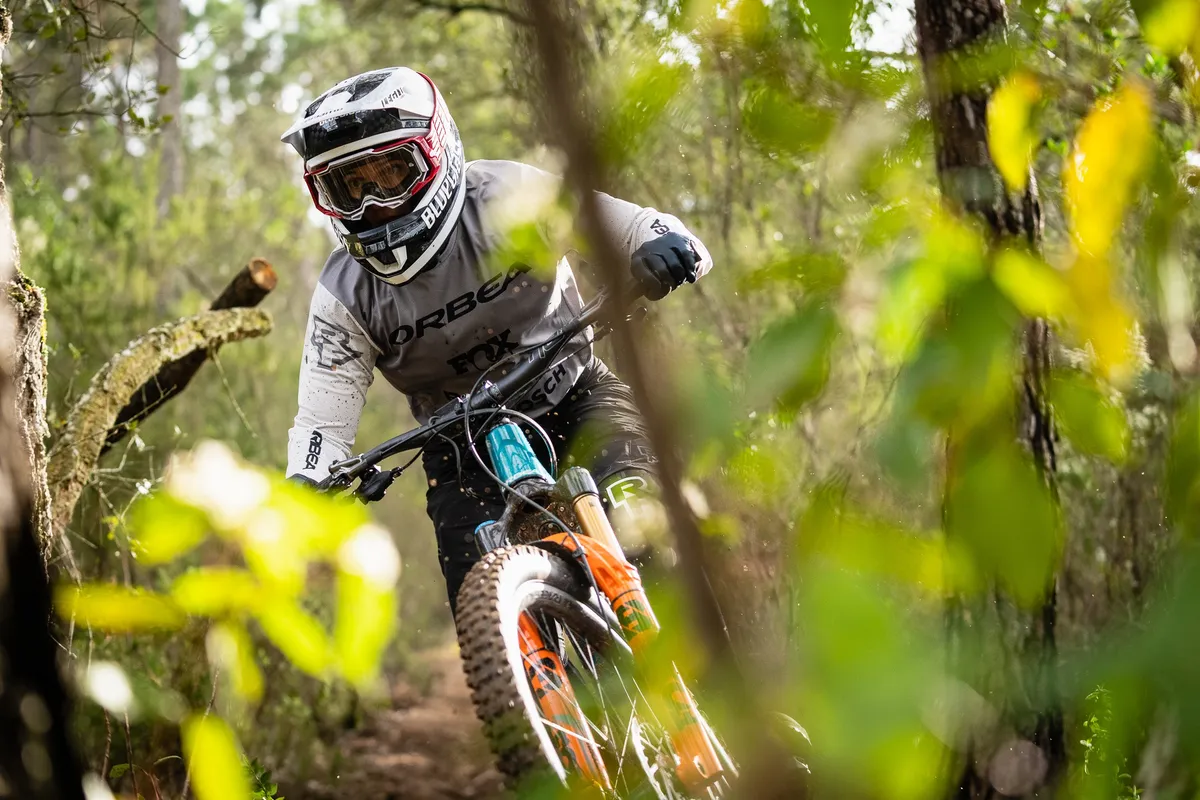
Otherwise, knee pads, elbow pads, gloves and eye protection – many riders opt for goggles – are essential. A hydration pack with basic spares is a good idea too, particularly if you’ll be out for a long time and away from the event HQ or car park.
If you need to kit up, we’ve got these buyer's guides to help you make the right picks:
Who are the riders to watch?
If you’re interested in watching top-level enduro racing, as well as trying it for yourself, the French have traditionally dominated, from former World Cup downhill stars Nicolas Vouilloz and Anne-Caroline Chausson, to enduro specialists such as Jerome Clementz and Rémy Absalon.
More recently, we’ve seen French riders such as Isabeau Courdurier and Morgane Charre battle it out with Brits, Bex Baraona and Harriet Harnden, in the women's field.
In the men’s field, the French dominance of old has been diluted, with stiff competition from Canadians Rhys Verner and Jesse Melamed, who have both battled USA’s Richie Rude for the top spots.
It’s also worth keeping an eye out for Charles Murray, Slawomir Lukasik and Youn Deniaud, who are all capable of competing at the sharp end of racing.
Top ranked British riders include Alex Storr of Forbidden Factory Racing and Mathew Stuttard from Polygon Factory Racing.
And although Tracy Moseley is from the old guard, she's still a contender for the title in the electric mountain bike series.
Where can I have a go at enduro racing?
UCI Enduro World Cup
The 2023 UCI Enduro Mountain Bike World Cup consists of seven events.
| Round | Event | Location | Date |
|---|---|---|---|
| 1 | UCI EDR Maydena | Maydena, Tasmania | 26 March 2023 |
| 2 | UCI EDR Derby | Derby, Tasmania | 01 April 2023 |
| 3 | UCI EDR Finale | Finale, Italy | 04 June 2023 |
| 4 | UCI EDR Leogang-Salzburgerland | Leogang-Salzburgerland, Austria | 18 June 2023 |
| 5 | UCI EDR Val Di Fassa Trentino | Val Di Fassa Trentino, Italy | 25 June 2023 |
| 6 | UCI EDR Loudenvielle-Peyragudes | Loudenvielle-Peyragudes, France | 03 September 2023 |
| 7 | UCI EDR Haute-Savoie | Haute-Savoie, France | 17 September 2023 |
UCI Enduro World Cup qualifiers
There are less UCI Enduro World Cup qualifying races than there was Enduro World Series events this year.
| Event | Location | Date |
|---|---|---|
| Oman National Championships (OMA) | Muscat | 28 January 2023 |
| New Zealand National Championships (NZL) | Nelson | 03 March 2023 |
| Enduro of Maydena Open Racing (AUS) | Maydena, TAS | 25 March 2023 |
| Enduro of Derby Open Racing (AUS) | Derby, TAS | 31 March 2023 |
| Greece National Championships (GRE) | Kos | 01 April 2023 |
| Israel National Championships (ISR) | North Israel | 14 April 2023 |
| French National Championships (FRA) | Levens | 15 April 2023 |
| Spanish National Championships (ESP) | Puntallana | 22 April 2023 |
| American Continental Championships (CRC) | Heredia | 30 April 2023 |
| German National Championships (GER) | Winterberg | 20 May 2023 |
| Enduro of Finale Open Racing (ITA) | Pietra Ligure | 02 June 2023 |
| Slovenian National Championships (SLO) | Trbovlje | 11 June 2023 |
| Enduro of Val Di Fassa Open Racing (ITA) | Val di Fassa | 24 June 2023 |
| Chilean National Championships (CHI) | Valparaison | 02 July 2023 |
| Italian National Championships (ITA) | La Thuile Aosta | 09 July 2023 |
| Polish National Championships (POL) | Czarna Gora | 09 July 2023 |
| USAC National Championships (USA) | Ride Rock Creek, NC | 16 July 2023 |
| Czech National Championships (CZE) | Kraličák | 23 July 2023 |
| Slovak National Championships (SVK) | Kosice | 30 July 2023 |
| Canadian National Championships (CAN) | Whistler | 30 July 2023 |
| Irish National Championships (IRE) | Dublin | 20 August 2023 |
| Indonesian National Championships (INA) | Lubuk | 29 August 2023 |
| Traktorland Enduro (NOR) | Norway | 27 August 2023 |
| Enduro of Loudenvielle Open Racing (FRA) | Loudenvielle | 01 September 2023 |
| Belgium National Championships (BEL) | Bouillon | 09 September 2023 |
| Austrian National Championships (AUT) | Kirchberg in Tirol | 10 September 2023 |
| Swiss National Championships (SUI) | Aletsch-Arena | 10 September 2023 |
| Enduro of Chatel Open Racing (FRA) | Chatel | 15 September 2023 |
| South African National Championships (RSA) | Cascades | 15 October 2023 |
| Australian National Championships (AUS) | Red Hill | 15 October 2023 |
| Philippine National Championships (PHI) | Guimaras Island | 21 October 2023 |
| Portuguese National Championships (POR) | Cadafaz | 22 October 2023 |
Local events
Alongside the UCI Enduro World Cup and its numerous qualifying events, most European countries, as well as the USA and Canada, New Zealand and Australia, have their own local events, whether that's one-off races or a series.
In the UK, these include:
One thing to bear in mind – rules and regulations tend to vary from country to country, so make sure you read the terms and conditions.
Otherwise, seek out a local event and have a go.
